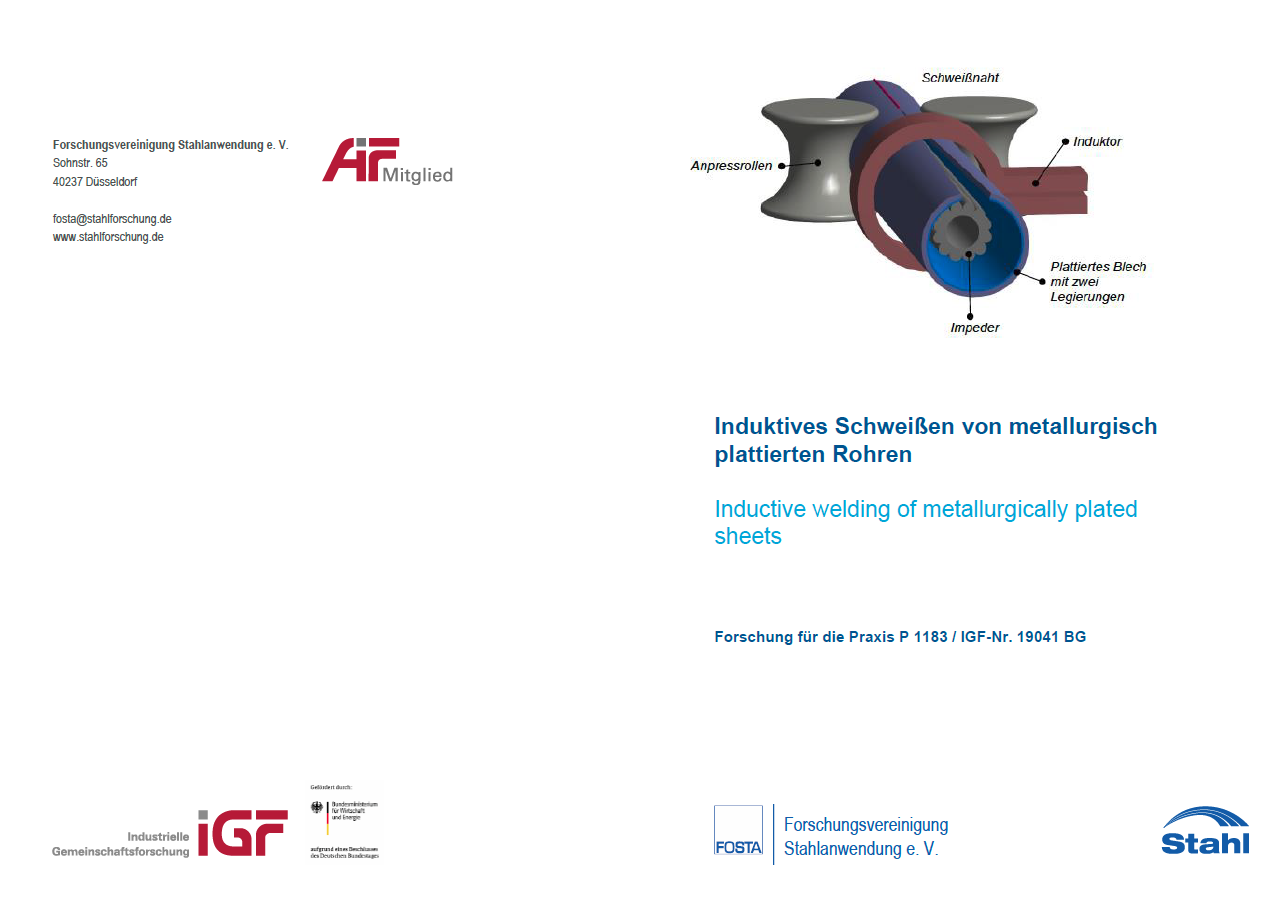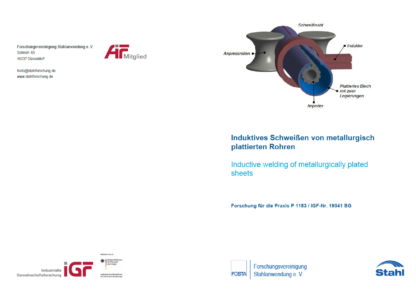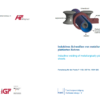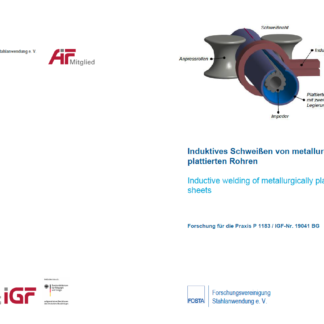Description
P 1183 – Inductive welding of metallurgically plated sheets
The research project opts to enable inductive longitudinal welding of metallurgically plated sheets for the production of cladded steel pipes. Thus, induction welding of multilayered steel compounds will be qualified for the first time.
To obtain a consistent joint and a desired distribution of alloying elements along the joining zone, the different layer-materials have to be heated selectively and the weld pool movement in the heat affected zone has to be controlled. For this purpose, simultaneous multi-frequency technology is used for selective heating. Specific weld seam geometry controls the flow of the melt. A multiple simulation approach is used to reproduces the real process.
The multiple simulation approach combines numerical FEM simulation as well as conductive and inductive welding tests. The first module for inductive welding of multimaterials and multi-frequency technology will be the result of the simulation work. A conductive sheet welding test facility using plane specimens will reproduce the complex inductive tube welding process. Inductive pipe welding tests will reference and qualify the results of conductive tests and FEM simulation.
By comparing these methods, findings on their suitability to reproduce industrial processes can be obtained. Industrial pipe welding processes can also be simulated with commercially reasonable efforts without affecting production lines. Thus, the introduction of new materials and their combinations is greatly facilitated.
The possibility to process cladded materials with inductive welding process offers enormous cost-cutting potential in existing applications such as pipeline tubes. In addition, completely new applications were enabled such as corrosion-resistant flue gas pipes for boiler, or welding consumables in which the alloy composition can be adjusted.
Published in:
August 2020
Authors:
M.Sc. Dipl.-Wi.-Ing. M. Kroll, Prof. Dr.-Ing. habil. V. Kräusel, Dipl.-Ing. W. Ebel, apl. Prof. Dr.-Ing. E. Baake




